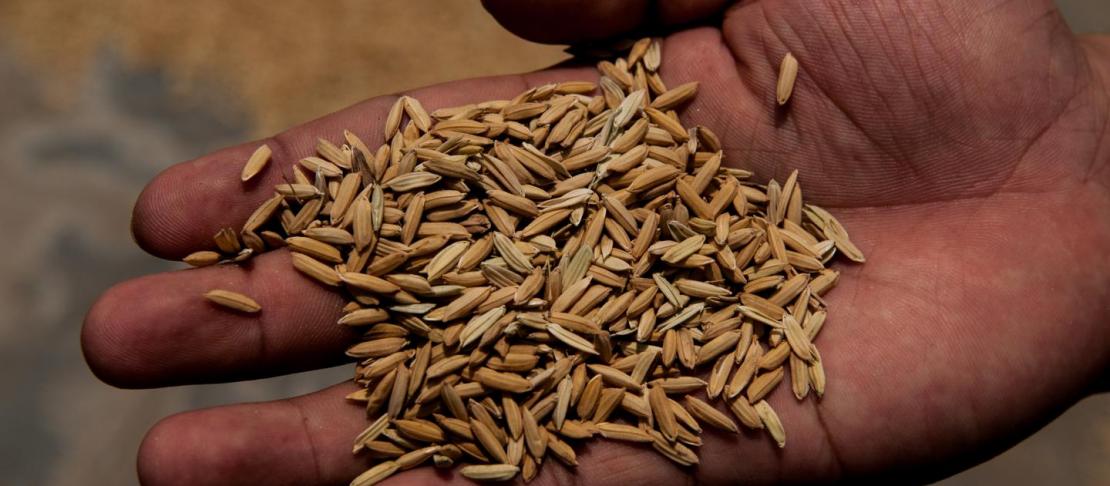Expanding the Horizons of Seed Production: A Journey with Meru Agro
By Anthony Muchoki
In the lush fields of Tanzania, an unyielding passion for improving agricultural practices has blossomed. Chacha Wetanga, CEO and founder of Meru Agro, discusses the growth, challenges, and aspirations for improved seed production.
From humble beginnings in 2005, Meru Agro-Tours & Consultants Co. Ltd (MATC) started as a vision in the heart of Wetanga, and it was his undying passion nurtured it into the giant it is today. “When I registered Meru Agro, it began as a small Agro Dealer with one employee. Today, our strength has multiplied with around 100 full-time employees. During peak seasons, our casual labour extends to 200 to 800 daily,” he proudly states.
However, the path wasn’t always strewn with roses. Wetanga recalls, “It was a risk leaving a stable job in 2009 to focus on this venture. But I had a vision for the agricultural scene in Tanzania. Quality seeds were the key to food sovereignty for smallholder farmers. By providing affordable inputs, we could disrupt the cycle of poverty.”
This determination to provide quality seeds led to a pivotal partnership. In 2008/9, AGRA took note of Meru Agro’s efforts and awarded them a substantial grant of USD 223,900. This wasn’t just financial aid but a testament to the potential AGRA saw in Meru Agro’s vision. “Our collaboration with AGRA has been instrumental. We utilized the grant to its fullest potential, and by the end of 2012, our certified seed production skyrocketed by over 100%. The AGRA grant was a launchpad, boosting our production capacity from a mere 100MT in 2010 to a whopping 3000 MT currently,” Wetanga says, emphasizing AGRA’s role in their success.
Under Wetanga’s guidance, Meru Agro’s success story didn’t stop there. They expanded, diversifying their seed production zones, adding more processing facilities, and establishing dedicated market & sales points across Tanzania. “In 2010, we had only one processing facility, and by today, our operations cover over 24 regions. This couldn’t have been possible without AGRA’s initial investment and the invaluable institutional networks they provided,” Wetanga adds.
A vibrant private sector is pivotal for growth in any field, especially in the seed sector. Wetanga credits AGRA for playing a catalytic role in fostering a dynamic seed system in Tanzania. “With AGRA’s support, domestic seed production has seen a robust increase. Today, we have commercialized 30 locally developed grain varieties that smallholder farmers have adopted, showcasing the efficiency of our seed production system.”
However, like all success stories, Meru Agro’s journey wasn’t devoid of challenges. The task of engaging smallholder farmers presented cultural and educational barriers. Wetanga admits, “Many farmers often revert to recycling seeds and shying away from using fertilizers. This makes continuous education and extension services crucial.”
Beyond these challenges, the regulatory landscape, particularly the tax regime, often poses hurdles. “An unfriendly tax regime stifles growth. While we’ve made significant strides in agriculture development, challenges persist, especially in accessing inputs, technologies, and finance,” Wetanga states. He further emphasizes the need for continued collaboration with AGRA and the government of Tanzania to create a supportive environment for the seed sector.
As we approach AGRF 2023, Meru Agro’s vision shines brighter than ever. With plans to modernize and expand their operations, and a renewed focus on digitization, Wetanga’s dream of providing quality seeds to every Tanzanian farmer seems closer than ever.
His final words resonate with the promise of a brighter future. “Agriculture is the backbone of Tanzania. With quality seeds and the right support, we can ensure that every farmer reaps the benefits of their hard work.”

